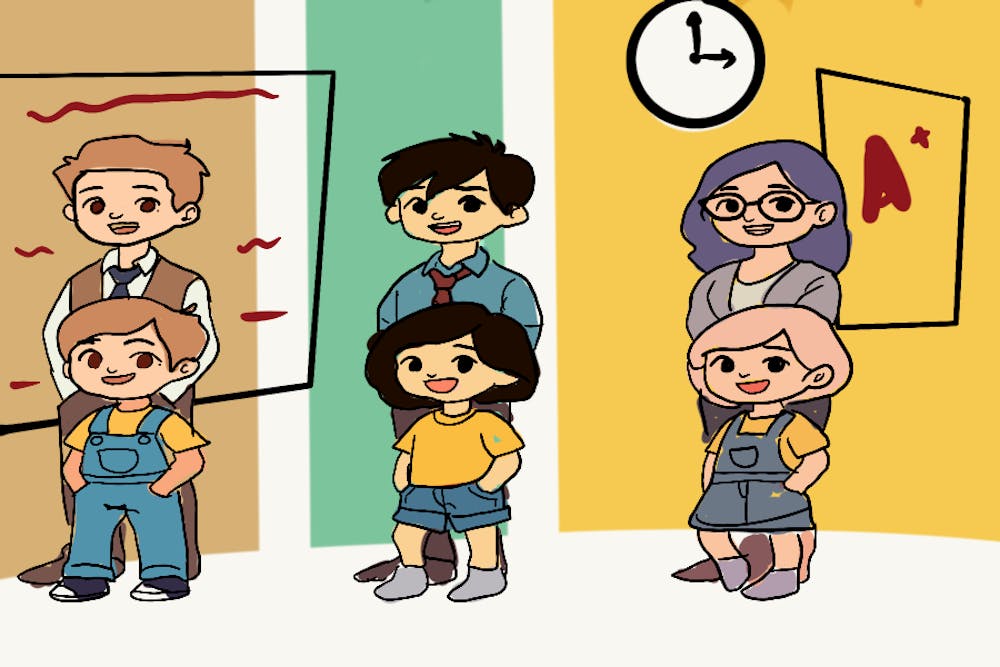Recently, the White House shared information regarding possible changes coming to the Department of Education that have sparked concern among future educators. Many ASU community members have shared thoughts on the matter.
According to the White House website, President Donald Trump is looking to dissolve the Department of Education to give children and families the ability "to escape a system that is failing them."
Around 7,800 students are currently enrolled in the Mary Lou Fulton College for Teaching and Learning Innovation at ASU. The majority of these students will find themselves within the classroom and teaching within the next five years.
Commotion about education at the federal level has left Sun Devils concerned about the future of their career.
"I just find it disheartening. I still want to teach, but I feel like there's so many factors pushing teachers not to want to teach anymore," said McKenna Reagan, a junior studying elementary education.
Reagan said many of her peers feel the same and the subject is often mentioned in her classes. She said both her and her peers have shared concerns regarding the funding decisions the department oversees.
Reagan, like many of her peers, is particularly concerned with accessibility resources, like Section 504 which protects students with disabilities who receive financial assistance from the Department of Education and Individualized Education Programs (IEPs) that outline special education instruction and services.
Alterations made to the Department of Education, such as the relocation of these programs to Health and Human Services, could directly affect both programs and their funding.
"What happens with the child in my internship who is hearing impaired or the kids that need speech IEPs?" Reagan said. "What happens with those kids if they can't get the help that they need?"
Alumnus and current elementary school teacher, Kyla Hannan, is also concerned about funding as she nears the end of her first official year of teaching.
Hannan said despite the current climate of education, she does not question the idea of being a teacher.
Hannan said while having funding concerns, being a teacher is still far removed from its federal department. Teachers should not directly feel changes, especially since little has passed congressional approval, she said.
Hannan said she encourages current education majors to continue to push through on the path they started.
"At the end of the day, kids still need teachers," Hannan said. "And that's what's important, is making sure that students still have teachers to learn from."
Dean of the Mary Lou Fulton College, Carole Basile, was quick to address rumors circulating about the future of the federal department.
"You got to keep all this in perspective, you know, in terms of what's really going to impact our students and whether or not they will be successful as teachers," Basile said.
Basile explained, much like Hannan, that changes made on the local level are more likely to affect current students and their careers directly.
"The Department of Education is at the federal level (and) really doesn't impact what happens at a local level," Basile said. "So much of education policy is created at the state and at the local level – either districts, charter schools, private schools. Hiring and things like that, happen there."
Basile said this time is unsettling, but it could be considered a period of reset, which does not inherently mean it will hold any adverse effects.
"We're going to wait and see what happens," Basile said. "But that doesn't mean that our work stops."
There are many topics and approaches the Mary Lou Fulton College is implementing to keep education students competitive in an increasingly innovative career-path, from Next Education Workforce and Whole Child Education, all the way to the development and incorporation of artificial intelligence.
As for funding concerns surrounding grants and scholarship programs, Basile said that simply because they go away does not mean they cannot return. Basile explained that private donors often share funds with universities and schools.
"There's a lot that we're doing to support students, to make sure students have jobs, to make sure we're pulling out every stop there," Basile said.
Edited by Senna James, Alysa Horton and Alexis Heichman.
Reach the reporters at emalvar9@asu.edu.
Like The State Press on Facebook and follow @statepress on X.
Emilio is a sophomore studying journalism and mass communication and political science. This is his first semester with The State Press.




